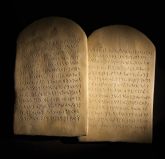×


We have detected your country as:
Please click here to go to the USA website or select another country from the dropdown list.
by: Rev. Cheryl L. Hauer, International Development Director

maxuser/shutterstock.com
As Bible believers, nothing should give us greater joy and confidence than the knowledge that the Spirit of the Living God is intimately involved in every aspect of our lives. For many Christians, that relationship begins with spiritual rebirth and empowers the believer to live a new life as a child of God. The Writings of the Apostles (New Testament) mention the Holy Spirit and His action in the life of the believer and the Church over 90 times.
The term “Holy Spirit” only appears three times in the Tanakh (Gen.–Mal.); twice in Isaiah and once in Psalm 51. However, other terms such as the Spirit of the Lord, God’s Spirit, My Spirit, the Spirit of God, the Spirit of Judgment, the Spirit of Wisdom and Your Spirit, to name a few, clearly refer to the Holy Spirit. They are found well over 100 times, making it clear that the work of the Holy Spirit has been an integral part of God’s interaction with mankind since the very beginning. Rabbis, Jewish sages, Bible scholars and Christian commentators alike agree that the Holy Spirit has played a pivotal role in God’s relationship with His people, His interaction with all of creation, and the fulfillment of His will on earth.
We are living in remarkably exciting days as the Lord, through the power of His Holy Spirit, is fulfilling prophecies uttered millennia ago by men of God speaking through the power of that same Spirit. The Jewish people are being re-gathered to their ancient homeland from the ends of the earth, and Israel is taking an increasingly central role on the world stage. At the same time, the Church worldwide is awakening to the importance of the modern State of Israel and relationships are being forged between Christians and Jews that many would never have believed possible. As the Holy Spirit sweeps the globe, calling people of faith to participate with God in this amazing prophetic fulfillment, it becomes increasingly important that we understand how both communities view the Spirit of the Lord and His work in our midst.
Although scholars and laymen alike agree on the existence and importance of the Holy Spirit, finding comprehensive teaching on the Spirit’s functions is not an easy task. In searching Jewish and Christian commentaries, as well as the internet, we find a variety of lists, each claiming to give us the last word on the Holy Spirit’s activities among men. One Christian commentator listed comfort, encouragement, enlightenment and teaching as the Spirit’s functions. Another listed regeneration, restoration, revelation and redemption. Pentecostal leader George Wood, in his article “Actions of the Holy Spirit,” listed creation, regeneration, revelation of the Scriptures and resurrection from death. Another agreed with Wood, but added indwelling and restraint of sin. Most Jewish sources mention prophetic utterance, prophetic fulfillment, revelation of God’s will and the power to accomplish it as the primary evidences of the presence of the Holy Spirit.
It is important to note that in some streams of Judaism today, as in Pentecostal and Charismatic Christianity, there is a strong belief in what Christians call the “gifts of the Spirit.” This is evidenced primarily by a conviction that the Spirit of the Lord is active in our day, as in ancient times, as the Healer. Never was this more apparent than at a recent gathering of Jews and Christians here in Jerusalem. Our Jewish speakers spoke of Rabbi Benny Elon, a well-known and influential leader, a former member of Knesset and committed friend of Christians. We were reminded that, as Rabbi Elon deals with cancer, a call has gone out to all of his Bible-believing friends, both Jews and Christians, to pray that the Spirit of the Lord will touch the rabbi and heal him. It was remarkable to realize in such a tangible way our shared belief in the power of the Holy Spirit, and to hear our Jewish friends give thanks to Christians for their prayers and praise to the God of Israel for His healing Spirit.
For many Christians, it is a surprise to learn that Judaism has a birthday. Jewish people, on the other hand, are shocked to learn that Judaism actually shares that birthday with the Church.
In Leviticus 23:16, the Israelites are told to count seven weeks, or 50 days, from Pesach (Passover) to reach the beginning of the next festival. That holiday is called Shavuot (Feast of Weeks) in Hebrew, but today many Jews and most Christians recognize it as Pentecost. That, by the way, is a transliteration of the Greek word pentekostos which simply means fiftieth day.

jsp/shutterstock.com
Shavuot is the festival that commemorates the giving of the Torah on Mount Sinai. Here, we are told in the book of Exodus, the Jewish people heard the voice of the Lord directly for the first time. As they approached the mountain, they were greeted by thunder, lightning, fire and smoke, trumpet blasts and earthquakes. The power of the Lord was overwhelming and the people were terrified. And it was here that the God of the Universe gave His Torah (Gen.–Deut.), or teaching, to the Jewish people; telling them, and through them all mankind, exactly who He is and what is required to be in relationship with Him. The people responded by agreeing to hear and obey all that the Lord said. This was a critical moment in the history of Israel and is observed to this day as the birthday of Judaism.
Shavuot was also one of three pilgrim feasts in the annual cycle of ancient Israel. These were specific holidays on which all Israelite men were required to appear at the Temple in Jerusalem. They were times of great rejoicing, worship and community celebration, as Jews from all over the Land gathered in the Holy City in obedience to the Lord. By the time of Yeshua (Jesus), many Jews were living outside of Israel, but as many as could, still made their way to Jerusalem for these festivals.
Today, most Christian denominations including Roman Catholic, Anglican, Lutheran and Eastern Orthodox as well as Pentecostal and Charismatic, celebrate Pentecost in some way. They acknowledge it because it also commemorates a watershed event in the history of Christianity…the birth of the Church.
The Apostle Luke, writing in the second chapter of Acts, tells us that the time for Pentecost had been fulfilled. Fifty days had passed since the Passover that had seen the Crucifixion and Resurrection of Yeshua. During those seven weeks, there were many of His followers in the Land, some estimate as many as one million, but there was no significant movement that could be called “the church.” But now Shavuot had arrived and according to Yeshua’s instructions, His followers were gathered together in one place, waiting. Suddenly, a great roaring sound, like a strong driving wind, was heard from heaven. Accompanied by fire, it would certainly have reminded these Jewish men and women of the event they were gathered to commemorate—the giving of the Torah on Mount Sinai. But even that knowledge could not have prepared them for what would happen next as fire fell upon each one of them and they were filled with the Holy Spirit. They were imbued with power to speak in other languages as they proclaimed the mighty works of the Lord, to prophesy, to bring healing and restoration, and to live a communal life directed and protected by the Spirit of God. On the day commemorating the birth of Judaism, Christianity was born as well.

turnervisual/Istock.com
The book of Acts tells us that these early believers in Yeshua continued to be a part of the Jewish community, meeting together in the Temple as a respected stream of Judaism. However, events would occur that would tear the two communities apart, and eventually, heresies would ravage the Church that would take their toll on both communities.
Replacement theology would convince Christians that God had abrogated His covenant with the Jewish people, that Jews were to live under perpetual judgment, making the way for Christian anti-Semitism to flourish. As time went on, many would teach that the Tanakh was the Old Testament and no longer relevant, while only the New Testament was important for believers. Scripture would not be understood in its historical context, and Christians would come to believe that the Holy Spirit was a “New Testament” phenomenon, not active in ancient Israel.
But what does the Bible really say? It is interesting that Christians could become convinced that the Holy Spirit was somehow a stranger to the “Old Testament,” when the first reference to Him is found in Genesis 1:2. From there, the “Spirit of the Lord” frequents the pages of the Tanakh, with the final reference found in Malachi 2:15.
These ancient verses recognize the Holy Spirit as God’s instrument for creation. Genesis 1:2, Job 33:4 and Psalm 104 all make it clear that creation and regeneration are acts of the Spirit of the Lord.
Leadership was also given to the Jewish people through the power of the Holy Spirit. Moses and the 70 elders who helped him govern the Israelites in the desert were able to do so because they were all men who had received the Holy Spirit. The Lord told Moses to choose Joshua to lead the people into the land because he was a man, “in whom is the Spirit” (Num. 27:18). King Saul and King David as well were able to lead the people, fight battles and win wars because of the anointing of the Holy Spirit. Othniel, Gideon, Jephthah and Samson were all men who led and judged under the power of the Spirit. Even the artisans who were involved in creating the Tabernacle and its furnishings did so under the Spirit’s anointing.
Scripture is clear that in the Tanakh, as in the Writings of the Apostles, the Holy Spirit was a gift given through God’s sovereignty to empower His people to do His will. And though it was not something that could be earned, its precious presence could be lost. David walked in the power of the Spirit throughout his life, even though he was not perfect. However, recognizing his sin, and aware that the Lord had taken His spirit from Saul, Psalm 51 tells us he cried out to the Lord, “Do not cast me away from Your presence, and do not take Your Holy Spirit from me” (v. 11).
Most scholars agree that between 25% and 30% of the Bible is prophetic in nature. These history-changing words were spoken by men who were submitted to God and acting under the anointing of His Spirit. Isaiah, Jeremiah, Ezekiel, Daniel, Joel and Micah all make it clear that their ability to speak in the name of the Lord came to them by the power of the Spirit. Isaiah says he “comes with the Spirit of the Lord” (Isa. 48:16); Ezekiel says the Spirit “came into him” (Ezek. 2:1–3); Micah tell us that he is “filled with power, with the Spirit of the Lord…” (Mic. 3:8). Perhaps none so visibly walked in the constant presence of the Holy Spirit as Elijah and his successor, Elisha. As a matter of fact, Elisha’s only wish upon Elijah’s impending departure was for a “double portion” of the Spirit that rested upon his master (2 Kings 2:9–15).
Having looked at the various activities of the Holy Spirit as revealed in the Tanakh, it is helpful to compare them with the functions the Spirit performs in the Writings of the Apostles:
1. Teaching
Nehemiah 9:20 is only one of many verses in the Tanakh that make it clear that the Holy Spirit was given by God to instruct the people, to admonish them and lead them in truth. Yeshua Himself makes the very same claim in John 16:13, when He states that the Holy Spirit will guide His people into all truth.
2. Faith
In Galatians 5, faith, or faithfulness as it is more aptly translated, is found among the nine characteristics called the fruit of the Spirit. As Christians, we believe that these characteristics will manifest themselves in the life of the believer because of the presence of the Holy Spirit. In Hebrews 11, we find a list of “Old Testament” saints whose lives of service to the God of Israel were made possible by faith.
3. Prophecy
As mentioned earlier, the Jewish sages have taught that prophetic utterance is evidence of the presence of the Holy Spirit. Moses himself is recorded in Numbers 11 as saying, “Oh, that all the Lord’s people were prophets and that the Lord would put His Spirit upon them!” (v. 29). Paul made a similar statement when he encouraged all the believers in Yeshua to seek the gift of prophecy (1 Cor. 14:1). This gift, he says, is for the edification of other believers, a clear indication that the Holy Spirit is present.
4. Regeneration
In his book The Holy Spirit in the Old Testament, Leon Wood discusses the concept of spiritual renewal in the Tanakh. Yeshua speaks often of the concept of being “born again” or “born from above.” These are clearly actions of the Holy Spirit. Yet when speaking to Nicodemus, Yeshua chastises him for not understanding the concepts of regeneration and rebirth when he is a “teacher of Israel.” How can this be, Yeshua asks, that a teacher of Israel, a teacher of Torah and Tanakh, does not understand the regenerating work of the Holy Spirit?
5. Ruach
It is interesting to note that the Hebrew word most often used for Spirit in the Tanakh is ruach. It means breath or wind. Often, it refers to loud, intrusive breathing through the nose. It is used in Exodus to describe an exceedingly strong west wind. The Greek word pneuma can be translated in exactly the same ways. In other words, the Spirit of the Lord in the Tanakh is powerful and mighty like a blast of strong wind…exactly as the Spirit presented Himself to those early believers on Pentecost.

Rajat Kohli/shutterstock.com
Of course, there are differences in how Christianity and Judaism view the Holy Spirit. Both are monotheistic religions, but the concept of a triune God that is foundational to Christianity does not exist in Judaism. The Holy Spirit, though remarkably similar in function and power, is therefore not seen as a person of the Godhead in Jewish teaching. The Spirit in the Tanakh is not a “he.” Rather, He is seen as a mode of operation, a function by which God interacts with His people and empowers men for the performance of His will. In the Talmud (rabbinic commentary), the Spirit of the Lord and the Shekinah are often interchangeable…the presence of the Lord, the glory of the Lord, the power of the Lord, a function of the Lord, but not a separate person.
Another significant difference often found in Christian teaching has to do with the indwelling of the Spirit. Christianity teaches that the Holy Spirit permanently indwells the believer as his Comforter, Teacher, Sanctifier and the Guarantor of his salvation. In the Tanakh, however, indwelling was a rare sign of favor experienced only by the likes of David and Joshua. Typically, the Spirit “came upon” individuals to empower them for specific tasks or periods of time. Further, Christianity understands that the Holy Spirit indwells only believers. However, in the Tanakh, there are occasions when the Spirit comes upon individuals who are considered wicked and not followers of the God of Israel. Yet they were empowered by the Spirit to complete a specific task that was imperative to the fulfillment of God’s will.
Finally, most Christians see the operation of the Holy Spirit on an individual level. The Spirit indwells individual believers and though together those believers comprise the Church, the focus is still on their lives individually. In the Tanakh, though the Spirit moves fairly often upon individuals, the focus is on God’s interaction with the nation of Israel.
It was by the power of the Spirit of God that the Israelites were miraculously delivered out of the house of slavery, fleeing Egypt and making their way to the Land promised to their forefathers. As the Spirit was poured out on individuals, the collective will of God was accomplished. Israel was saved as a community and the prophets spoke primarily to kings and leaders, chastising the shepherds for abandoning the sheep. Although they admonished the people to repent of their wicked ways and get right with the Lord, they most often spoke directly to those who were responsible for the state of the nation.
This is made beautifully clear by the prophet Ezekiel. In chapter 36, he is definitely encouraging individual faithfulness to the Lord and promising a new heart to men and women who are to be regenerated by the action of the Holy Spirit. But he speaks collectively of a sovereign move of the Spirit that will call the Jewish people home from the nations, establish them in the Land and reveal His character to all men through His faithfulness to the nation of Israel. He does not say that they have repented and are somehow worthy of redemption. As a matter of fact, He says their redemption is not about them at all. It is for the sake of His own name. And it is after the ingathering that He will again sovereignly move, but this time on individual hearts.
In chapter 37, Ezekiel speaks of the dry bones of the house of Israel. Many scholars believe this refers to the nation of Israel, the Jewish people, after the ravages of the Holocaust. By His spirit, Ezekiel says, the Lord will open their graves and cause their bones to rise up, to put on flesh and again have life. It is the promise of regeneration, and though it affects individuals, it is a promise to the whole house of Israel. Again in chapter 39 He promises to pour out His Spirit on the house of Israel. Thus will all men know that He is God.
 On that ancient day of Pentecost when the Holy Spirit came in power and the Church was born, the streets of Jerusalem were filled with Jews from all over the known world. Yet, those early believers were able to speak to them in their own individual languages. They were astonished that unlearned men and women could speak to them in tongues which they understood. Peter, by the power of the Holy Spirit, was able to preach a sermon without the help of electronic translators that everyone understood. In that sermon, he quoted the prophet Joel:
On that ancient day of Pentecost when the Holy Spirit came in power and the Church was born, the streets of Jerusalem were filled with Jews from all over the known world. Yet, those early believers were able to speak to them in their own individual languages. They were astonished that unlearned men and women could speak to them in tongues which they understood. Peter, by the power of the Holy Spirit, was able to preach a sermon without the help of electronic translators that everyone understood. In that sermon, he quoted the prophet Joel:
Afterward, I will pour out my Spirit on all people. Your sons and daughters will prophesy, your old men will dream dreams, your young men will see visions, even on my servants both men and women, I will pour out my Spirit in those days…(Joel 2:28–29 NIV)
Peter’s listeners would have been familiar with these verses. And they would have known that the words the Lord spoke through Joel just prior to these were great promises of regeneration, restoration and re-gathering. They would have recognized that Joel was speaking of a very specific time in the future when other prophecies of dispersion and persecution had been fulfilled; a time when God’s people would be restored to their Land and protected by His mighty Holy Spirit, a time when they would no longer be a reproach to the nations, a time when they would never again be put to shame.
We are indeed living in those days. God’s promised restoration and re-gathering are well under way. Millions of Jewish people are making their way back home from the nations and as prophesied in Isaiah 49:22, we as Gentiles have the privilege of helping these prophesies be fulfilled. These are the days when God is pouring His Spirit out on all people as a mighty move of His Spirit sweeps the globe and millions are coming to believe in the God of Israel. These are the days when each of us has a choice to make.
Will we partner with God and be a part of the amazing and exciting things He is doing? Or will we stay focused on our own individual needs, forgetting that our faithfulness to Him requires us to look beyond ourselves? Will we boldly stand for the nation of Israel, supporting the Jewish people? And will we embrace the promise of the prophet Zechariah, “Not by might nor by power, but by my Spirit says the Lord of Hosts” (Zech. 4:6).
Bialik, Hayim and Ravnitzky, Yehoshua. The Book of Legends. New York: Schocken Books, Inc., 1992.
Jewish Encyclopedia. http://www.jewishencyclopedia.com/articles/7833-holy-spirit
Ryrie, Charles C. The Holy Spirit. USA: Moody Publishers. New Edition, 1997.
Tamarind, Dr. Meir. Truths Desired by God. Jerusalem: Gergen Publishing House Ltd., 2011.
“The Rhetoric of Ezekiel’s Vision of the Valley of the Dry Bones.” Hebrew Union College Annual, 1980.
Wood, Dr. George. http://georgeowood.com/4-actions-of-the-holy-spirit/
Wood, Leon. The Holy Spirit in the Old Testament. USA: Zondervan Publishing, 1976.
All logos and trademarks in this site are property of their respective owner. All other materials are property of Bridges for Peace. Copyright © 2025.
Website Site Design by J-Town Internet Services Ltd. - Based in Jerusalem and Serving the World.